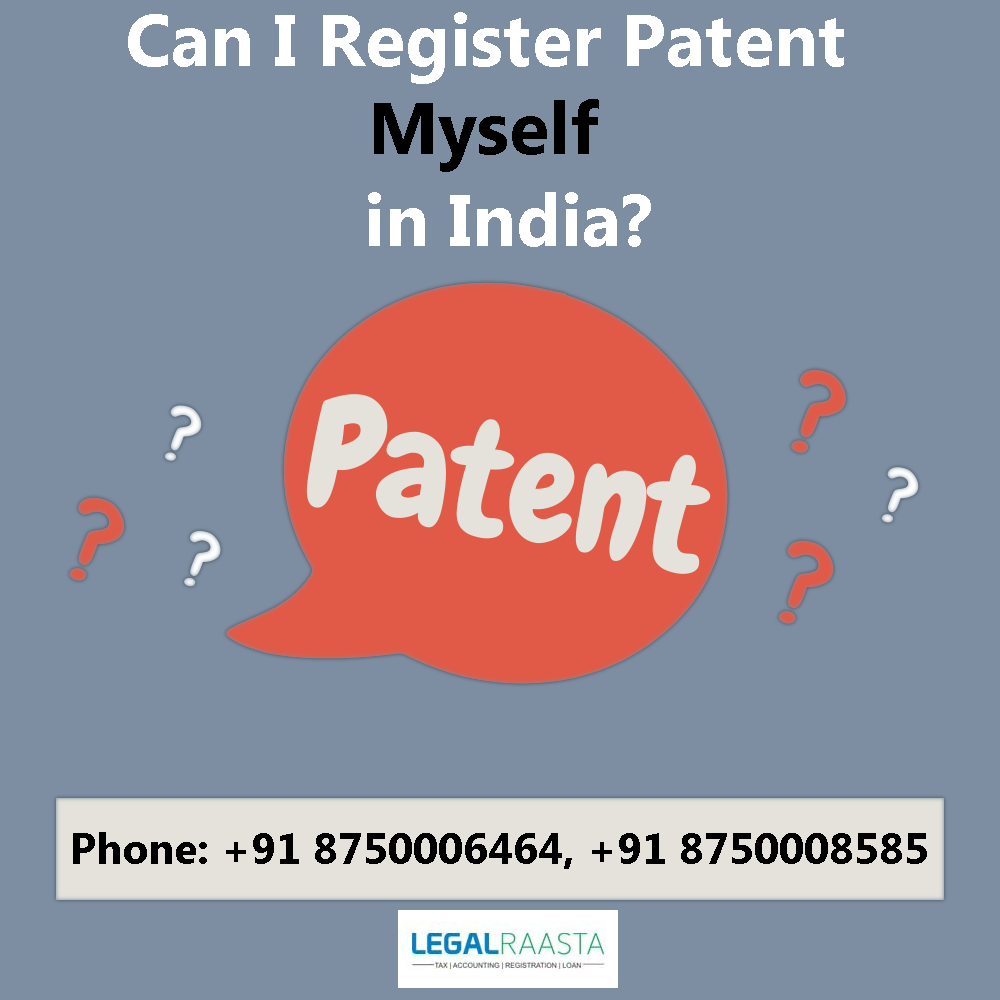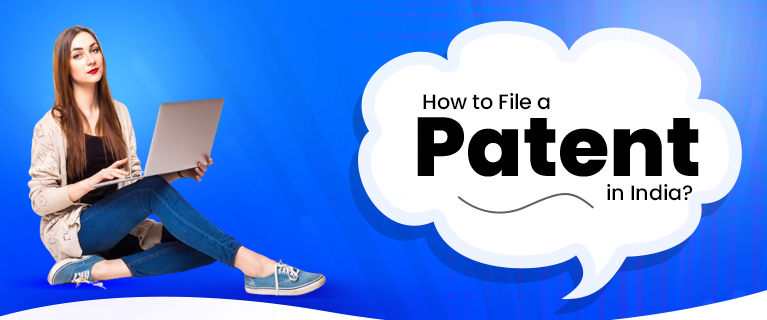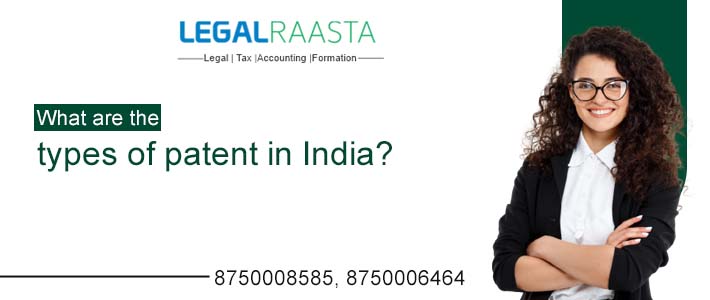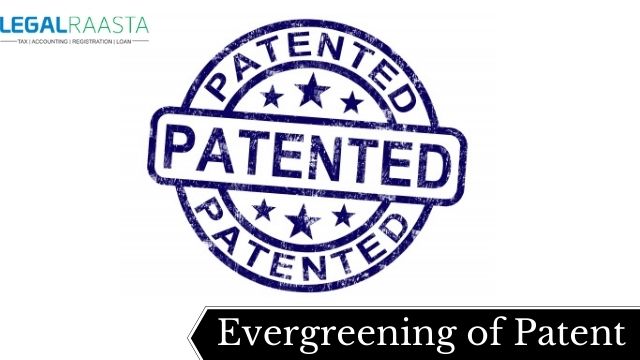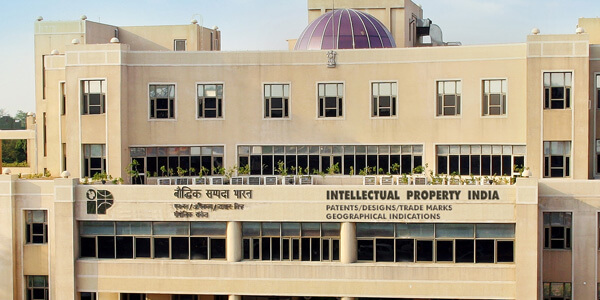Can I Register patent myself in India?
A Patent Application may be submitted under the Patents Act of 1970 by the true and first inventor, an assignee, or a legal agent. By sending the paperwork along with either a provisional or full specification of the invention to the Indian Patent Office, the application is made. Applications can also be submitted online using the extensive online filing system that is accessible. As a result, it is permissible for an individual to file their own Patent Application in India. However, submitting a patent application is just one of the numerous steps in the longer procedure that leads to receiving a patent. When a person submits his own patent application, there is potential for mistakes due to the legal complexities involved in this complicated Patent Application Procedure. In order to register patent without legal counsel, which is a somewhat difficult and involved process, so please contact LegalRaasta for assistance.
What Innovations Cannot Be Patented?
- According to the Patent Act of 1970, the following are not inventions: discrimination against a person’s life, health, or environment, or that of an animal, a plant, or both. A scientific principle must be discovered, an abstract theory must be created, and any substance, living or not, must appear in nature.
- The qualities of the components are combined via simple mixing.
- Simple rearranging or arrangement of natural devices.
- Any agricultural or horticultural technique, whether curative, preventative, curative, or surgical.
- Using a computer programme or other mathematical techniques to play the game.
- Atomic power is not patentable.
Patent Registration process in India
- Start by conducting a Patent Search at https://www.legalraasta.com/patent-registration/ to see whether or not a patent has previously been registered.
- A Form-1 application and the requisite filing fee for the patent register are submitted to the patent office. A patent specification, or Form 2, is a part of any application for a patent.
- Following submission to the patent office, the patent application will be published in the official patent journal.
- Before being awarded, a patent must be examined and to request an examination or inspection, use Form 18.
- After a thorough search, the First Examination Report (FER) in this case is submitted or issue. The first examination report for the application and any grounds for objections are created by the examiner.
- The applicant must submit a written response to each objection mentioned in the examination report in order to establish patentability. Physical hearings or video conferencing are employed for this.
- After the Patent Officer has confirmed that all objections have been addressed, the patent is awarded and the website’s application status is changed. After the invention is registered, a Patent Certificate might be obtained in six to one and a half year.
Obstacles you’ll have to deal with without a lawyer for patent register
- Since a patent is a techno-legal document, its drafting necessitates the use of both technical and legal skills. In other words, while anyone can design their own patent application, doing so merely as a technical document without taking into account the legal implications may limit the breadth of protection in the application and make all research and development efforts meaningless.
- Although creating a thorough patent application with compelling patent claims is the first step in the legal process in India to secure a patent, it is crucial to conduct a prior Patent search and determine whether the invention is patentable. The patent application is then written and submitted to the patent office in accordance with the established regulations. Following filing, the application is reviewed; if objections are made, the applicant must respond promptly.
- The patent application is scrutinized during the crucial patent prosecution phase. The applicant must promptly address any objections made in a patent office action in order to proceed. The experience of a patent specialist is quite helpful when submitting excellent responses to the office action report in a timely manner. Additionally, the territoriality principle forms the foundation of patents. Therefore, it is preferable to obtain expert assistance if a patent needs to be submitted in several nations because the specifics of the application process vary depending on the jurisdiction.
Why think about hiring a professional to file your patent?
- It’s crucial to keep in mind that a person may still face objections to a patent register they submitted even after the patent has been granted. The legal protection provided by the patent may have a limited reach as a result of the poorly written, incomplete yet short patent claims, allowing rivals to “design around.” This would invalidate the commercial value of the inventor’s invention and make the patent useless. Because of this, a patent professional’s skill in drafting patent claims aids a fruitful patent grant and guarantees the patent’s commercial value.
- The apparent cost-saving benefit of self-filing a patent application is naive because hiring a patent professional is no less than an investment and can reduce application errors and make the complicated process of getting a patent simpler. The advantages gained from the invention’s commercialization, assignment, or licensing can also be used to offset the costs of engaging a professional writer for the patent register in cases when the patent claims are written correctly.
Conclusion
Despite the lengthy and challenging nature of the entire Patent Register Process, it is vital to remember this. In conclusion, the question of whether a person can submit a patent application on their own is answered in the positive. However, it inevitably raises the issue of how comprehensive, defendable, and financially viable such a patent would be. In order to prevent problems and make sure that the gained patent is useful in the long term, hiring a professional’s services is advised notwithstanding the cost savings associated with filing a patent application. So, we’ve covered in this blog what difficulties you’ll have without expert assistance or self-registration of your patent. You can get assistance from the legal authorities if there is ever an infringement to avoid issues that could end up being a barrier to your advancement. We assist our clients in preparing and submitting Indian patent applications. So get in Touch with LegalRaasta for any technical Patent Registration Assistance in India and put any concerns about patent infringement to rest.

